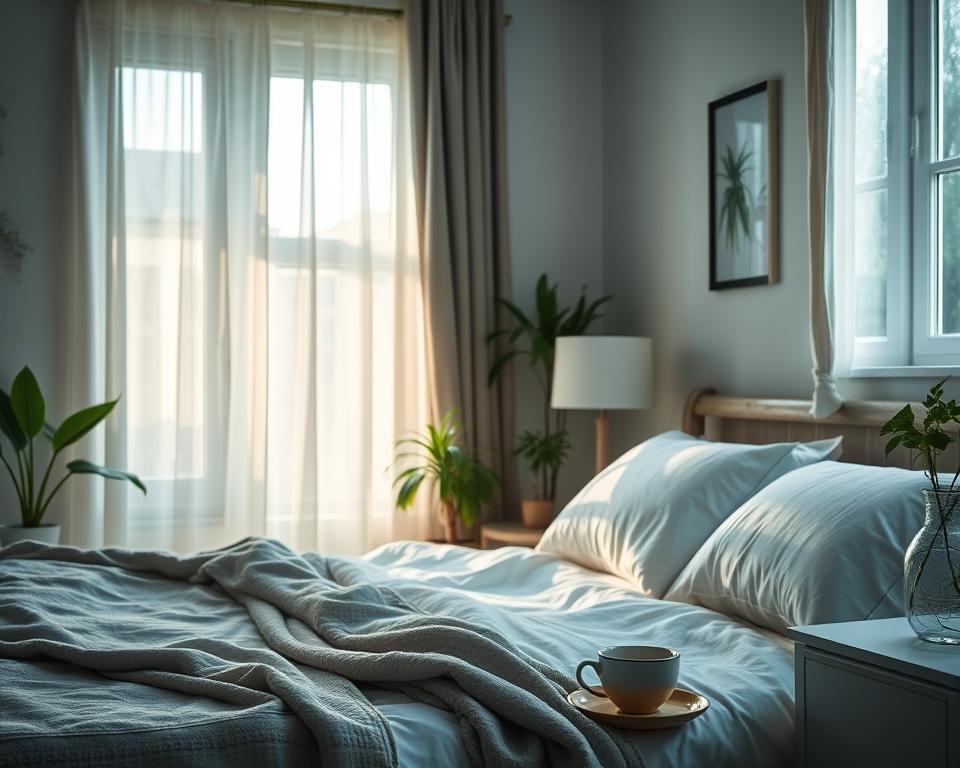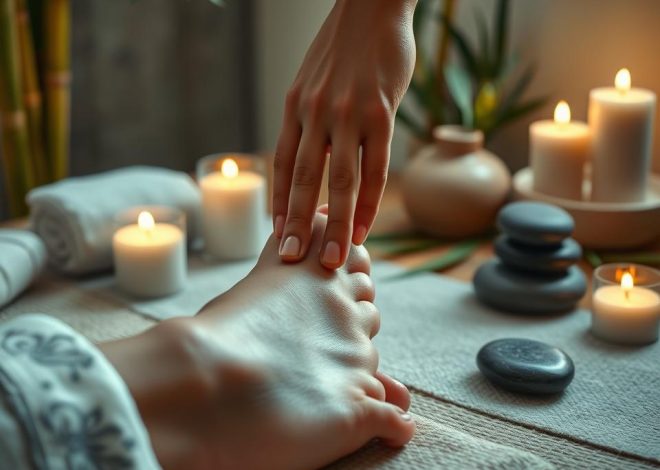
Rest Up: Health Comes First
In today’s fast-paced world, it’s easy to put work and productivity first. But, our health and well-being should be our top priority. Not getting enough rest can harm our physical, mental, and emotional health.
This article will highlight how rest is key to a healthy life. We’ll talk about spotting signs of exhaustion and the benefits of good sleep. We’ll also share tips on self-care, stress management, and getting the rest your body and mind need.
If you’re busy with work, family, or just life in general, it’s time to value rest more. By focusing on rest, relaxation, and self-care, you can boost your productivity and mental health. This leads to feeling more alive and full of energy.
Join us as we explore how making rest a priority can lead to better health and a more balanced life. Let’s start this journey together.
Read more interesting information at ::mbp-tokushima
Importance of Rest for Overall Well-being
In today’s fast-paced world, it’s easy to overlook the need for rest. But getting some rest if you haven’t got your health is key for a good work-life balance. It’s vital for your overall well-being.
Recognizing the Signs of Exhaustion
Feeling tired all the time, even after sleeping well, is a sign of exhaustion. Being less productive, irritable, or lacking motivation are also signs you need rest. Spotting these signs early can stop burnout and keep you performing well.
Balancing Work and Personal Life
Having a good work-life balance is crucial for your well-being. This means setting clear work and personal time boundaries. It also means taking breaks and doing things that help you relax. By managing stress and recharging, you’ll be better at work and in life.
| Importance of Rest | Benefits of Balanced Lifestyle |
|---|---|
| Improved physical health | Increased productivity |
| Enhanced mental clarity | Reduced stress levels |
| Increased energy levels | Stronger relationships |
| Better emotional regulation | Greater sense of well-being |
By noticing when you’re tired and working on balancing work and life, you’re taking steps for your well-being. With the right strategies, you can enjoy the benefits of rest and rejuvenation.
Health Benefits of Quality Sleep
Restorative sleep is key to our well-being, offering many health benefits that are often missed. It helps with physical recovery and boosts brain power. Quality sleep keeps us balanced and healthy.
One big plus of restorative sleep is how it helps our bodies heal. During deep sleep, our bodies fix and repair themselves. This is key for physical recuperation and keeping our bodies working right.
Quality sleep is also great for our minds. It helps our brains make memories, solve problems, and stay clear-headed. People who value sleep often feel more focused, productive, and good at making decisions.
To get the most from sleep, we need a regular sleep schedule and a sleep-friendly bedroom. Adding relaxation techniques and balancing work and life can improve sleep quality. This leads to many health benefits.
“A good laugh and a long sleep are the best cures in the doctor’s book.” – Irish Proverb
Understanding the importance of rest and focusing on restorative sleep is key to being physically and mentally well. Seeing how sleep affects us can lead to better physical recuperation and a happier life.
Stress Management: Prioritizing Rest
Managing stress is more than just treating symptoms. It’s about taking a full approach that focuses on rest and feeling refreshed. By finding out what causes stress and using relaxation methods every day, we can improve our mental well-being and think more clearly.
Identifying Stress Triggers
First, we need to figure out what makes us stressed. Common things that can cause stress are:
- Too much work
- Conflicts in relationships
- Money worries
- Health problems
- Not having enough time for everything
Knowing these stressors helps us make plans to lessen their effects. We can focus more on self-care and rejuvenation.
Relaxation Techniques for Mental Clarity
Adding relaxation techniques to our daily life can greatly improve our mental well-being. Some good ways to relax are:
- Mindfulness meditation: Pay attention to now and notice your thoughts and feelings without judging them.
- Deep breathing exercises: Breathe slowly and deeply to calm your mind and body.
- Gentle stretching or yoga: Do some light exercises to release tension and help with mental clarity.
Setting aside time for these activities helps us handle stress better. It keeps us feeling good mentally every day.
“The greatest weapon against stress is our ability to choose one thought over another.” – William James
Self-Care Routines for Physical Rejuvenation
In today’s fast-paced world, we often forget the need for self-care. Adding restorative activities to your daily life can greatly improve your health and happiness. Gentle exercises and spa treatments are great ways to focus on physical recuperation and rejuvenation.
Incorporating Restorative Activities
Low-impact exercises are key for your body’s self-care. Yoga, Tai Chi, or a slow walk can ease muscle tension and boost your energy. Also, relaxing hobbies like reading, gardening, or listening to music help your mind unwind.
“Taking time for self-care is not selfish, it’s essential. When we care for ourselves, we’re better equipped to care for those around us.”
For a special treat, try a spa day. Massages, facials, and hydrotherapy can reduce stress and rejuvenate you. These treatments help with relaxation, improve circulation, and boost your overall well-being.
Self-care is personal, so try different activities to see what suits you. By making rejuvenation a regular part of your life, you’ll move towards a healthier, happier lifestyle.
get some rest if you haven’t got your health
In our drive for success, we often forget how crucial rest and recovery are. The saying “get some rest if you haven’t got your health” reminds us that our well-being should come first. It’s the base for all other parts of our lives.
Our health is our most precious thing, yet we often ignore it when we’re busy. By pushing ourselves too hard, we hurt our productivity, creativity, and effectiveness.
- Heed the warning signs of burnout, such as persistent fatigue, irritability, and difficulty concentrating.
- Make a conscious effort to establish a healthy work-life balance, allowing time for rest, relaxation, and rejuvenation.
- Embrace restorative activities, such as meditation, yoga, or simply taking a leisurely walk, to recharge both your mind and body.
By prioritizing rest and self-care, you’ll not only improve your physical and mental well-being but also enhance your ability to achieve your goals and lead a more fulfilling life.
“The secret of getting ahead is getting started. The secret of getting started is breaking your complex overwhelming tasks into small manageable tasks, and then starting on the first one.” – Mark Twain
Remember, get some rest if you haven’t got your health is more than just a saying. It’s a key reminder that taking care of ourselves is our top priority. By following this advice, we can reach our full potential and live a more balanced, meaningful, and productive life.
Enhancing Productivity Through Proper Rest
In today’s fast-paced world, it’s easy to put work first and forget about rest. But research shows that proper rest is key to boosting productivity and work performance. Adding regular breaks and downtime to our day can greatly improve our cognitive abilities. This leads to better efficiency and job satisfaction.
Being well-rested helps us focus and concentrate better, making us more effective at our jobs. Creativity also gets a boost when our minds rest and recharge. This is especially useful for jobs that need new ideas and quick decisions.
“The secret of getting ahead is getting started. The secret of getting started is breaking your complex overwhelming tasks into small manageable tasks, and then starting on the first one.” – Mark Twain
Striking a good work-life balance helps us stay mentally clear and full of energy. Regular breaks not only make us more productive but also make us happier at work. This leads to better job satisfaction and overall well-being.

The importance of rest goes beyond just feeling good physically. Taking care of our mental and emotional health helps us reach our full potential. It lets us do our best work every day. Embracing rest is a great way to boost our productivity and find more joy in our careers.
Impact of Rest on Mental Well-being
Rest and relaxation are key for our mental health, not just our physical health. When we focus on mental well-being and self-care, we handle stress better. This leads to feeling more refreshed.
Strategies for Mindfulness and Calm
Rest helps our mental health by making us more mindful and calm. Techniques like meditation, deep breathing, or yoga help us stay in the moment. This reduces stress and anxiety from our busy lives.
- Start your day with a few minutes of mindful meditation to quiet your mind and find peace.
- Try deep breathing exercises to lower stress hormones and relax.
- Do gentle, restorative yoga poses to release tension and feel calmer.
By making time for mindfulness and calming activities, we can control our stress better. This leads to better mental well-being and feeling more rejuvenated.
“Rest is not idleness, and to lie sometimes on the grass under trees on a summer’s day, listening to the murmur of the water, or watching the clouds go by, is by no means a waste of time.” – John Lubbock
Creating a Restful Environment
Making your bedroom a calm and refreshing place is key for restorative sleep and physical recuperation. By making your bedroom just right, you can make a space that helps you relax and boosts your self-care habits.
Optimizing Sleep Conditions
Here are some tips for a good night’s sleep:
- Keep your bedroom cool, around 65°F (18°C), for comfort.
- Use blackout curtains or an eye mask to keep out light.
- Reduce noise with a white noise machine or earplugs if needed.
- Choose bedding that supports your spine and is comfy.
- Don’t use devices in bed, as their blue light can mess with your sleep cycle.
Creating a space that’s good for restorative sleep helps you sleep better and feel better overall. It’s all about physical recuperation and self-care.
“Sleep is the best meditation.” – Dalai Lama
Being well-rested is key for good health and being productive. Make sure to create a restful environment that helps with physical recuperation and self-care.
Overcoming Barriers to Rest
In today’s fast-paced world, finding time to rest can be tough. We often struggle with work and personal life, making it hard to balance. But, with a good plan and caring for ourselves, we can beat these barriers and live better.
One big challenge is feeling like we must always be productive. The push to work too much and fear of not doing enough can make us ignore our health. To fight this, we need to set clear limits and say “no” when it’s needed. By focusing on self-care and managing stress, we take back control of our lives.
Dealing with family and personal duties can also block our path to rest. Caring for kids, doing household tasks, or helping aging relatives can fill our days. To get past this, we should look for ways to share tasks, ask for support, or find flexible work options for better work-life balance.
| Barrier to Rest | Strategies to Overcome |
|---|---|
| Overwhelming work demands |
|
| Personal and family obligations |
|
We can overcome the hurdles to rest by understanding the issues and using practical methods. Remember, making time for rest is key to staying well and finding a good balance between work and life.

Restorative Sleep: A Key to Physical Recovery
Getting enough sleep is key for healing and staying healthy. Our bodies repair and recover during sleep. Knowing how sleep works helps us rest better.
Understanding Sleep Cycles
The sleep cycle has two main parts: NREM and REM sleep. NREM sleep has four stages, each helping with recovery.
- Stage 1 NREM: This stage helps the body relax before deeper sleep.
- Stage 2 NREM: The body cools down, and heart and breathing slow, helping with recovery.
- Stage 3 NREM: Known as “deep sleep,” it’s vital for fixing tissues, growing muscles, and balancing hormones.
- Stage 4 NREM: This is the deepest sleep, letting the body fully recharge.
- REM Sleep: This stage is when we dream and is key for thinking and feeling good.
Knowing the sleep cycle helps us sleep better. This supports our recovery and health.
“Sleep is the best meditation.” – Dalai Lama
| Sleep Stage | Description | Benefits |
|---|---|---|
| NREM Stage 1 | Transitional stage allowing the body to relax and prepare for deeper sleep. | Initiates the sleep process and facilitates the transition to deeper sleep stages. |
| NREM Stage 2 | Body temperature drops, heart rate and breathing slow down. | Promotes physical restoration and recovery. |
| NREM Stage 3 | Also known as “deep sleep,” this stage is crucial for tissue repair and hormone regulation. | Supports muscle growth and physical recuperation. |
| NREM Stage 4 | The deepest and most restorative stage of sleep. | Allows the body to fully recharge and rejuvenate. |
| REM Sleep | Associated with vivid dreaming and cognitive function. | Contributes to emotional processing and overall well-being. |
Balancing Work and Personal Rejuvenation
Finding a good work-life balance is hard, but it’s worth it. By making time for self-care and rejuvenation, we boost our productivity and happiness. This leads to a more balanced and fulfilling life.
Setting clear lines between work and home life is crucial. We should limit work hours and avoid being always connected. It’s good to have special times for family or just relaxing.
It’s also key to take care of ourselves. This means doing things like meditation, yoga, or hobbies we love. These activities help reduce stress and make us feel better overall.
| Work-Life Balance Strategies | Benefits |
|---|---|
| Establishing Boundaries | Reduced stress, improved productivity, and enhanced personal time |
| Incorporating Self-Care Routines | Increased mental clarity, physical rejuvenation, and overall well-being |
| Prioritizing Leisure and Relaxation | Improved mood, better sleep, and a more balanced lifestyle |
By focusing on work-life balance, we can really benefit from self-care and rejuvenation. This helps us do well at work and in our personal lives. It leads to a happier, more sustainable life.
“The greatest weapon against stress is our ability to choose one thought over another.”
Importance of Rest for Caregivers
Caregivers often have a lot on their plates, leaving little time for themselves. Yet, it’s key for them to make rest and relaxation a priority. This helps avoid the harmful effects of burnout. By focusing on their own health, caregivers can keep up their strength to care for their loved ones well.
Avoiding Caregiver Burnout
Burnout is a big problem for caregivers, causing emotional and physical tiredness, and less ability to care well. To fight this, caregivers need to watch for signs like feeling irritable, having trouble focusing, and feeling hopeless. Adding self-care to their daily life helps manage stress and keep their mental well-being strong.
- Try relaxation methods like deep breathing, meditation, or yoga to reduce stress and clear your mind.
- Make time for restful activities, such as getting enough sleep, taking breaks, and doing things you enjoy.
- Look for support from friends, family, or groups to share the load and recharge.
Putting their own health first helps caregivers stay energetic, patient, and emotionally strong. This balance between caring for others and taking care of themselves is crucial. It prevents burnout and keeps caregiving rewarding and fulfilling.
Incorporating Rest into Daily Routines
Adding rest to our daily life is key for a balanced and refreshing lifestyle. By focusing on self-care and balancing work and life, we can see big improvements in our well-being and productivity.
Scheduling regular breaks is a great way to start. These short breaks can include simple mindfulness like deep breathing or a quick meditation. Even a 5-10 minute break can refresh our minds and bodies, helping us with self-care and work-life balance.
There are also creative ways to add rejuvenation to our days. This could be a short walk at lunch, listening to calming music, or doing some stretches. Adding these activities to our daily life makes sure rest is a big part of our routine.
| Recommended Daily Rest Practices | Benefits |
|---|---|
| Mindfulness Breaks | Reduced stress, improved mental clarity |
| Lunchtime Walks | Increased physical activity, refreshed energy |
| Stretching Routines | Enhanced flexibility, muscular relaxation |
By using these easy yet powerful practices, we can tap into the healing power of rest. This leads to a more balanced and refreshing life. Remember, taking care of ourselves is essential for our long-term health and success.
“The ability to be in the present moment is a major component of mental wellness.”
Rest as a Form of Self-Care
Rest is key to taking care of ourselves. It feeds our mind, body, and spirit. By taking breaks, we recharge and feel more balanced and fulfilled.
Rest isn’t just for our bodies. It’s a way to take care of our whole being. It helps us stay healthy in all areas of life.
Nurturing Mind, Body, and Spirit
When we focus on rest, we’re looking after our mental health. Taking time to relax helps us think clearer, lowers stress, and improves our decision-making. It also helps our bodies recover, making us more productive.
Rest also helps our spiritual side. By setting aside time for quiet thought or meditation, we connect deeper with ourselves and the world. This approach to rest brings us closer to our purpose and brings peace and fulfillment.


